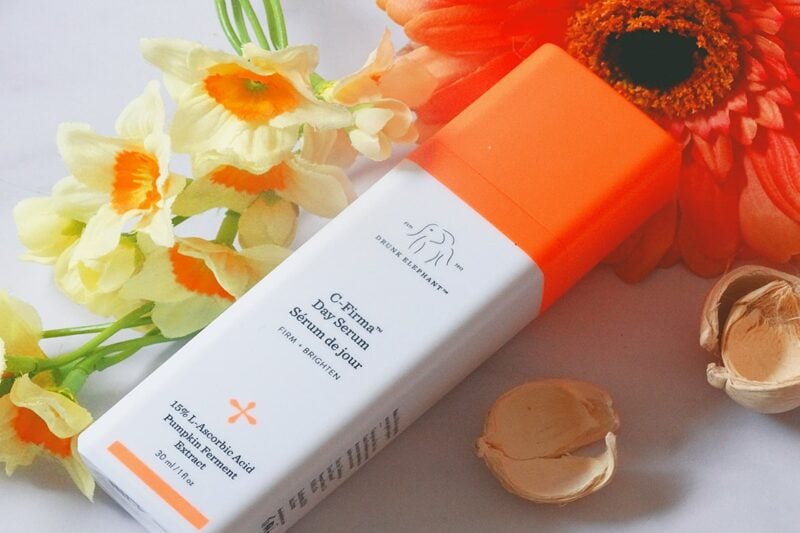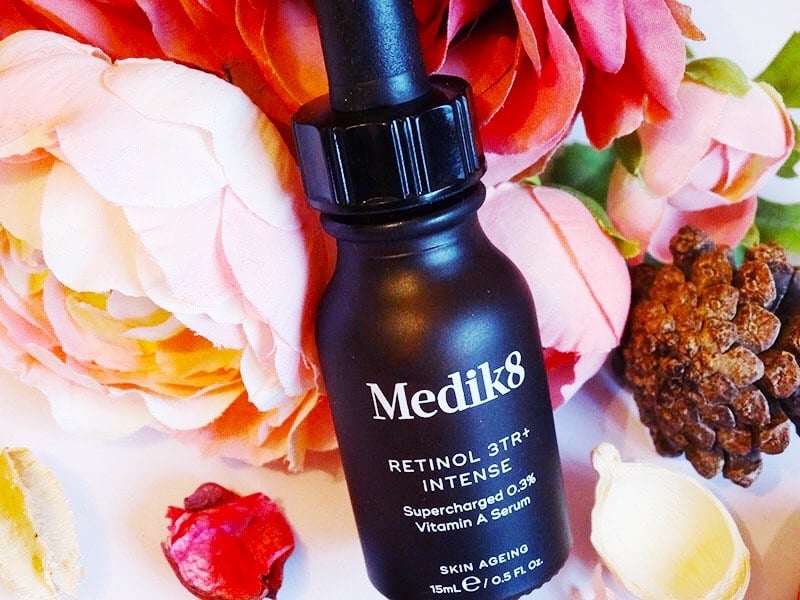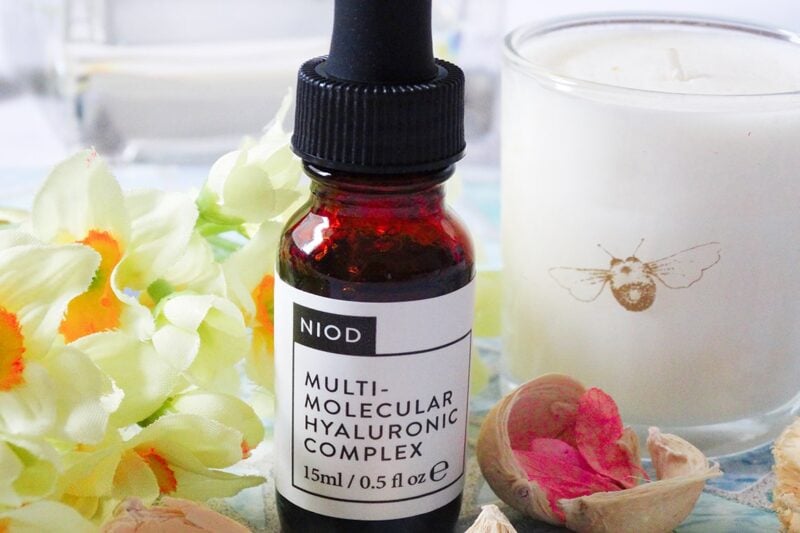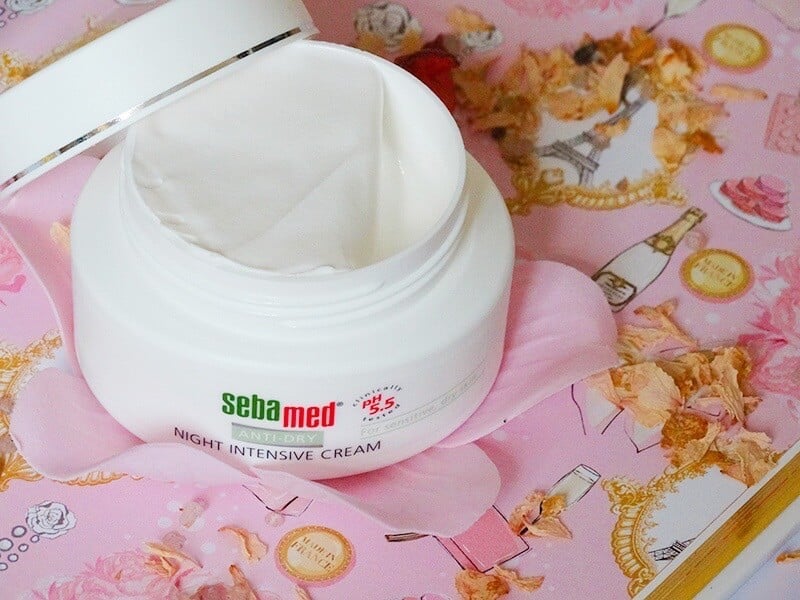
Let’s cut to the chase: the “60% of skincare products absorb into your bloodstream” is bullshit.
I don’t care if you’ve heard it from your BFF, read about it in Allure, or come across it on some natural brand’s website – or all of these places. I don’t care how many people tell you that your skin is a sponge that absorbs everything you put on it.
It’s a lie. A myth. A sick marketing tactic natural skincare brands came up with to scare you away from traditional skincare products and towards their often greasy, comedogenic, and smelly offerings.
(Yes, I know there are many good natural skincare products out there. NOW. This myth started back in the day when natural meant oily and unpleasant. Guess why?)
Just because everyone is repeating something, it doesn’t make it true. People still think that buying a house in is an investment (even if they pay exorbitant taxes every year and won’t ever make a penny back on said house – hint: it’s NOT an investment if it’s NOT making you money. And yes, it’s ok to buy a house, but it’s a purchase, not an investment). But I’m disgressing.
Repetition doesn’t make truth. If you want to know if something is true or not, stop listening to your colleague at work and turn to science.
Let’s use science to debunk this myth once and for all, shall we?
Your Skin Is NOT A Sponge
Ever wondered why you have skin? It’s not just for decoration.
Your skin is your first defence against the outside world. It literally acts as a barrier that blocks what you come in contact with from getting inside your body.
If skin was as permeable as the natural brigade says, you’d literally absorb every particle of dirt, every germ and bacteria, and every droplet of water you come in contact with on a daily basis.
You see this in your daily life. Does the makeup you apply on your skin every morning gets absorbed into your body two hours later? Do you swell in size every time you take a bath? Does that drop of mustard that spilled onto your hand while eating a sandwich magically disappeared inside your body?
No. No. No. So why do you think that every skincare product you use gets automatically absorbed in the body? Why would they be the only exception?
Because when you apply a white cream on your face, you don’t turn into Caspar The Ghost. It sinks in, giving you the illusion it penetrated into your skin.
The reality is kind of different. The cream simply sank into the most superficial – and DEAD – layers of your skin. Just where it needs to be to do its job.
Heck, if sunscreens and moisturisers really penetrated deep into your skin, you’d be screwed. How could they protect you from UVA rays and loss of moisture?!
Related: How Do Oil-Free Moisturisers Work?
Want to know what ingredients you really need to avoid in your skincare products? Sign up to the newsletter below to receive the “Skincare Ingredients To Avoid” cheatsheet:
What About Medicated Creams?
The natural brigade often uses medicated creams as proof that everything you put on your skin gets absorbed. That’s stupid (and I don’t use this word lightly). If anything it’s proof of the contrary.
Let me ask you a question: wouldn’t you rather get your medicine through a patch or cream than an injection? Thought so.
And yet, very few health issues can be solved with creams or patches. 99% of them require either an injection, a syrup, a pill… or something way more invasive.
There’s a reason for that: the job of your skin is to keep stuff OUT of your body and it’s incredibly good at it. Try as they might (and they’re trying their best), researchers have a hard time coming up with medicines that can penetrate deep enough into your skin to make a difference.
That’s why they resort to injections or ingestion. They’re much better, faster, and more effective ways, to get stuff inside your body.
Related: How To Strengthen Your Skin’s Protective Barrier (And Why It Matters)

What Makes Skincare Products Penetrate Into Your Bloodstream?
So, does that mean that no skincare product ever makes it through your skin? Are all your lotions and potions useless? Not so fast.
When you apply a skincare product on your skin, it encounters the stratum corneum, its most superficial layer. What happens next depends on a few things:
1. How Big Is The Molecule?
Size matters. The smaller it is, the higher the chances it can penetrate your skin. As a rule, anything that’s bigger than 500 Dalton can’t get through.
Mineral oil, for example, is too big to sneak into the smallest nooks and crannies of your skin and stays on top of it. That’s just where it needs to be. Mineral oil (just like natural oils) works by creative a protective barrier on the skin that slows down water loss.
If mineral oil penetrated deep into your skin like the natural brigade wants you to think, it wouldn’t be able to do its job!
2. Where Are You Using It?
Did you know that some areas of your skin are more absorbent than others?
Your face, for example, absorbs more substances than your feet (probably because the skin there is thinner). But even in the face, there are differences. Your jaw, for example, is more absorbent than your forehead.
Even so, a substance still needs to fulfil the other criteria in this post to penetrate skin. So, don’t worry too much about your face now.

3. Does It Have The Right Polarity?
What the heck does that mean, Gio?
Your skin is made up of both water and oil (sebum and natural oils). If you’ve paid attention in chemistry class, you know that things that dissolve in water tend not to dissolve in oil.
A molecule must have the right polarity, i.e. it must be both oil and water friendly enough to penetrate through the skin and enter the bloodstream.
For example, spraying water on your face can’t hydrate it. Water can’t get past the skin’s lipid barrier – that’s why you don’t swell in size when you take a bath.
4. What’s The Delivery System?
Because so few ingredients can penetrate skin, researchers are coming up with all kinds of tricks to deliver the right actives deep into the skin, where they need to be to work their magic.
The most common is penetration enhancers. They’re ingredients that help other ingredients better penetrate your skin.
Alcohol is the most famous. It disrupts the skin’s protective barrier, so that actives can slip in through the cracks. Others, like urea, work by hydrating skin more (well-hydrated skin is more permerable).
Ultrasound, heating, and microneedling can increase penetration through the skin, too.
P.S. Sometimes, alcohol is used to thin the texture of a product. That’s its role in sunscreen (those need to stay on top of the skin to work, remember?).
Related: Microneedling: Does It Help Or Hurt Skin?

What About Daily Use & Accumulation?
If you’re read this far, you now understand that very few things make it past the skin’s protective barrier and enter the bloodstream.
But what about accumulation? After all, you’re using 10+ personal care products every single day. Should you worry about that?
First off, stop using what you DON’T need. A lot of us use stuff like toner, multiple essences, and other stuff that doesn’t make a difference just out of habit. The more products you use, the higher the chance of a breakout or irritation.
But not of accumulation. It doesn’t matter how many products you use. Very, very few ingredients can penetrate your skin. Nowhere near the 60% the natural brigade proclaims. The real figure is probably less than 10%.
Plus, don’t underestimate your liver and kidneys. They’re your body’s in-built detox system. Even if something gets through that shouldn’t have, your body will promptly expel it through urine.
Related: The Truth About Detoxifying Products

If Skincare Ingredients Can’t Penetrate The Skin, How Can They Possibly Work?!
If skincare products aren’t absorbed by the skin, does that mean they don’t work? Of course, not!
As I’ve already mentioned, most skincare products NEED to be on top of your skin to work. This is the case for anything that moisturises your skin or provides sun protection.
What about active ingredients like L-Ascorbic Acid and retinol? These anti-aging superstars need to penetrate skin if they’re to stimulate collagen, fight free radicals, and keep us looking younger for as long as possible.
Good news: they’re small enough to penetrate the skin.
Of course, size isn’t everything. You also need to formulate them at the right pH and pick a good delivery system to give them the best chance of success and get as deeply into the skin as possible.
That’s why reading reviews from people who understand skincare formulations is important. They can tell you if a product has what it takes to deliver on its promises.
The Bottom Line
Very few ingredients make it past the superficial, dead layers of skin and into the bloodstream. Definitely way, way, way less than the 60% claimed by the natural brigade. Most ingredients stay on the surface of your skin – just where they need to be to do their job.
What do you think of this skincare myth? Share your thoughts in the comments below.

This was very interesting information. I’ve been a Paula choice user for many years. The last few years I’ve struggled with if chemicals are bad and if AHA and retional are really aging my skin in the long run. Started using organic natural skin care that has Essential oils and I’ve read how that’s really damaging my skin. This article has helped me understand a lot better. Thank you